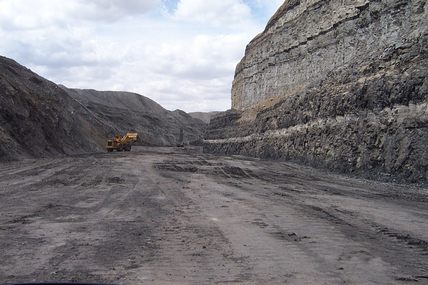
Probable Hydrologic Consequences: Refuse Disposal Study
Open Pit Coal Mine, Northern Arizona
Western Water & Land, Inc. was tasked with an in-depth study of hydrologic impact associated with the disposal of wash-plant refuse materials at a large open pit coal mine facility. The work was part of a mine permit renewal effort and included and initial task of delineating the optimum disposal area at the mine site followed by a detailed assessment of potential hydrologic impact. The hydrological assessment addressed pertinent regulations in 30 CFR 816 as they relate to protection of the hydrologic balance and disposal of coal mine waste, potential changes to the hydrologic balance including the potential for significant acid or toxic infiltration of groundwater, and changes in present or potential use of groundwater.
The assessment involved a compilation and interpretation of hydrogeologic data including, aquifer characteristics (examination of the potentiometric surface, water quality, hydraulic parameters, flow directions and gradients), well construction and core hole data, meteorological data, pit inflow calculations, surface-water characteristics, mine operation and engineering data, borehole geophysical data, and spoils geotechnical data, and other related data. Western Water & Land submitted a recommendation for the refuse disposal area on the basis of a thorough evaluation of these data. This work was followed by an extensive evaluation of the fate and transport of potential generated leachate from the wash-plant refuse materials. This evaluation included a statistical assessment of groundwater quality in the entire mine area as compared to refuse-generated leachate; groundwater flow calculations; leachate mixing calculations, and numerical modeling of saturated and unsaturated groundwater flow and transport. The final report concluded that the hydrologic impact of refuse-generated leachate would be of minimal impact to the aquifers within and immediately underlying the mined area.
Open Pit Coal Mine, Northern Arizona
Western Water & Land, Inc. was tasked with an in-depth study of hydrologic impact associated with the disposal of wash-plant refuse materials at a large open pit coal mine facility. The work was part of a mine permit renewal effort and included and initial task of delineating the optimum disposal area at the mine site followed by a detailed assessment of potential hydrologic impact. The hydrological assessment addressed pertinent regulations in 30 CFR 816 as they relate to protection of the hydrologic balance and disposal of coal mine waste, potential changes to the hydrologic balance including the potential for significant acid or toxic infiltration of groundwater, and changes in present or potential use of groundwater.
The assessment involved a compilation and interpretation of hydrogeologic data including, aquifer characteristics (examination of the potentiometric surface, water quality, hydraulic parameters, flow directions and gradients), well construction and core hole data, meteorological data, pit inflow calculations, surface-water characteristics, mine operation and engineering data, borehole geophysical data, and spoils geotechnical data, and other related data. Western Water & Land submitted a recommendation for the refuse disposal area on the basis of a thorough evaluation of these data. This work was followed by an extensive evaluation of the fate and transport of potential generated leachate from the wash-plant refuse materials. This evaluation included a statistical assessment of groundwater quality in the entire mine area as compared to refuse-generated leachate; groundwater flow calculations; leachate mixing calculations, and numerical modeling of saturated and unsaturated groundwater flow and transport. The final report concluded that the hydrologic impact of refuse-generated leachate would be of minimal impact to the aquifers within and immediately underlying the mined area.
